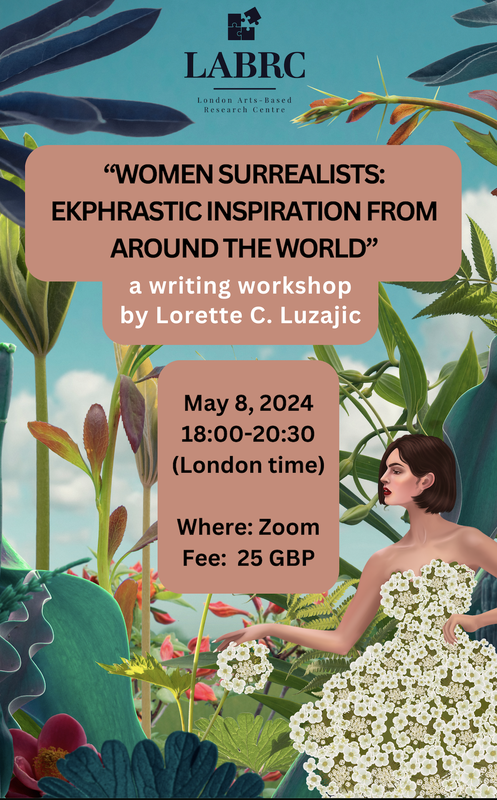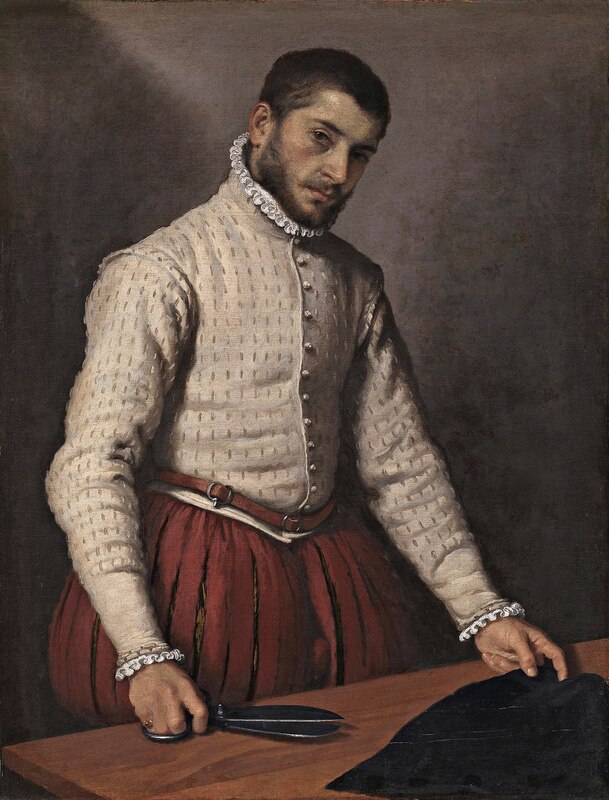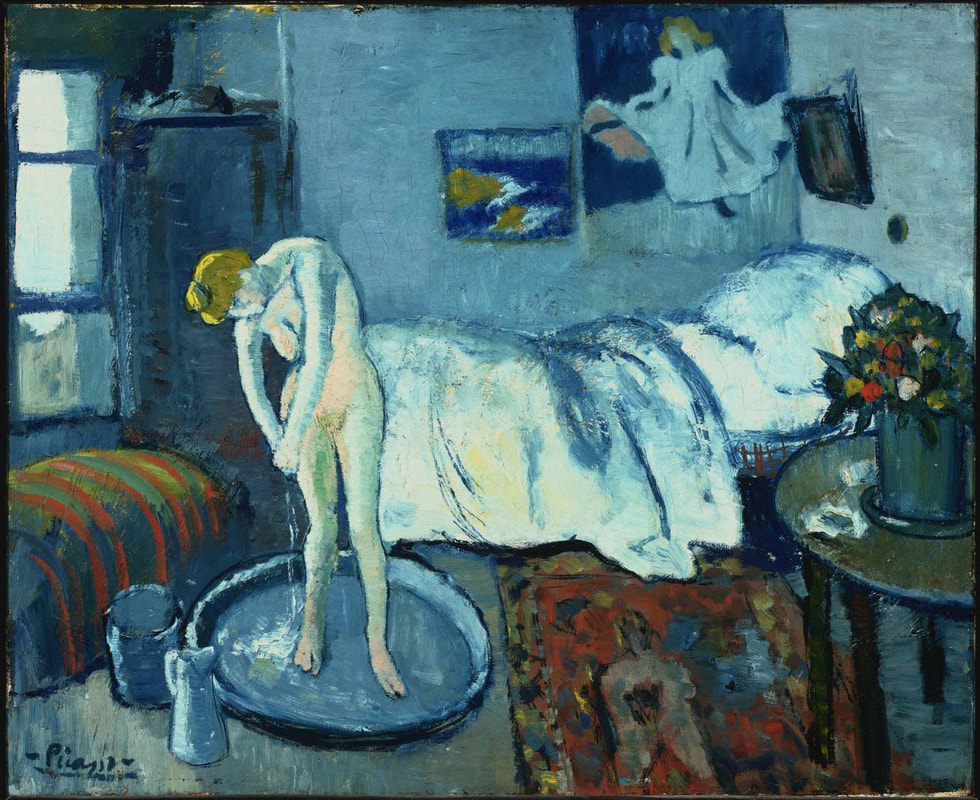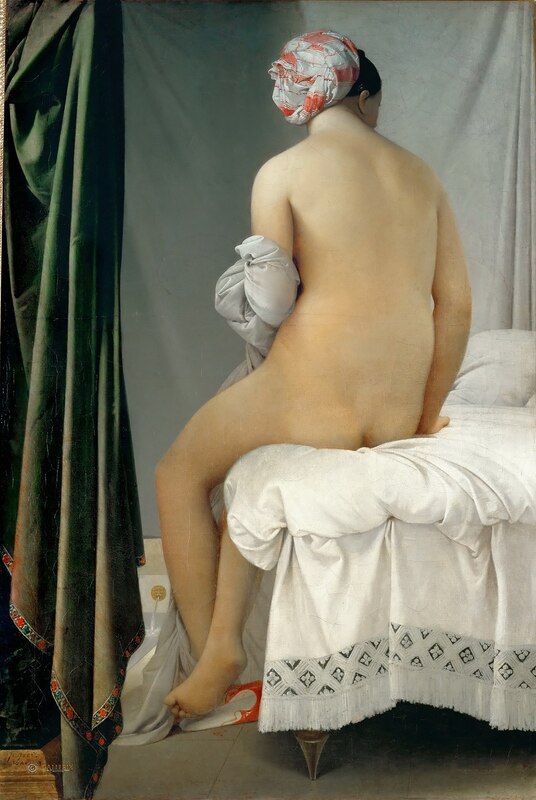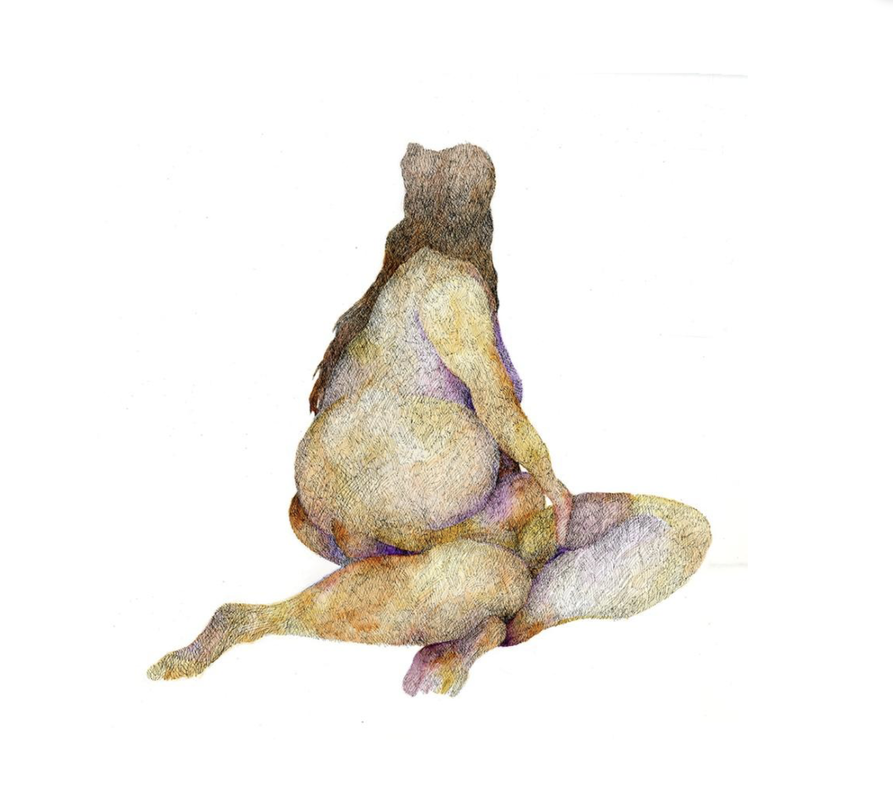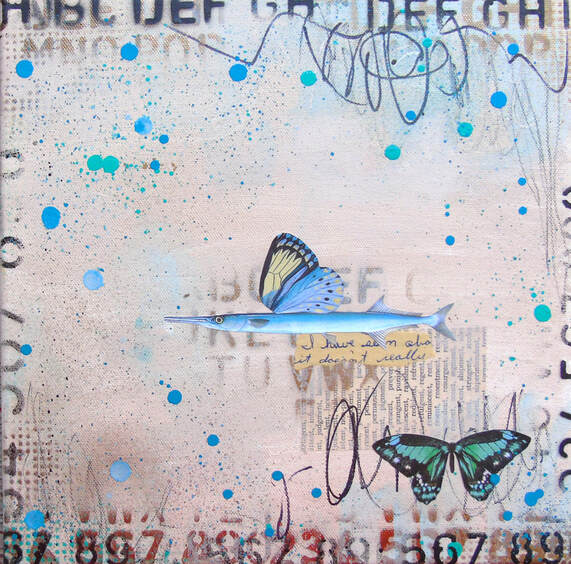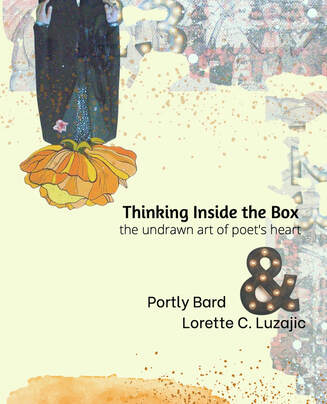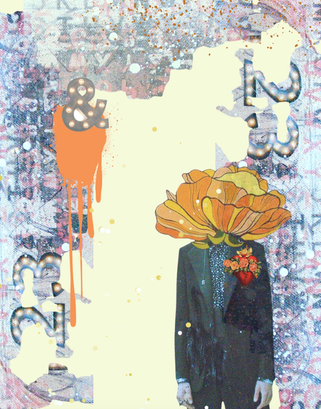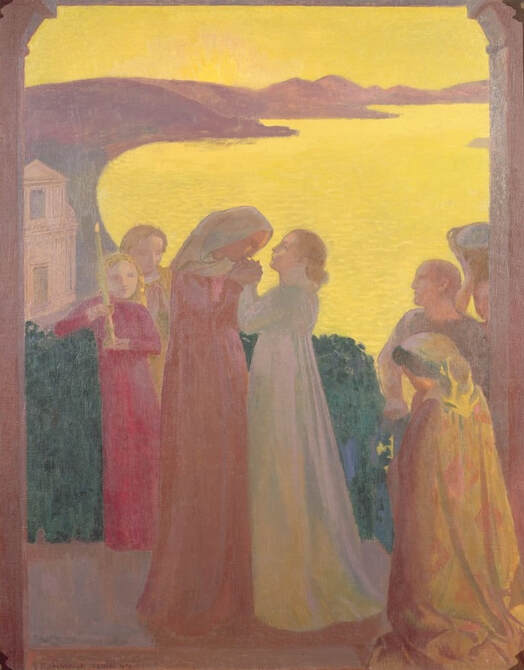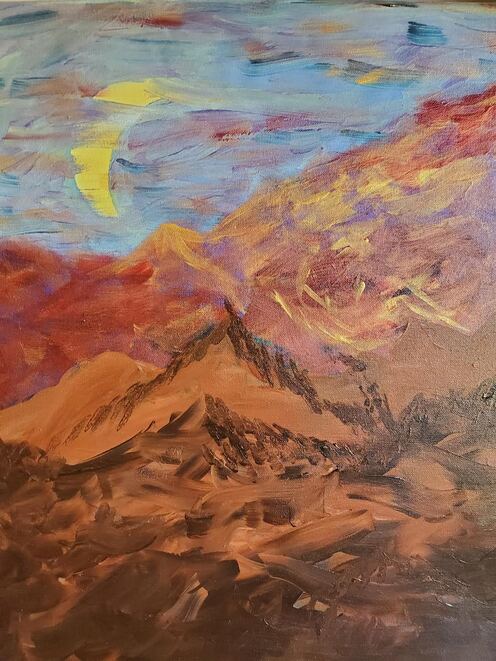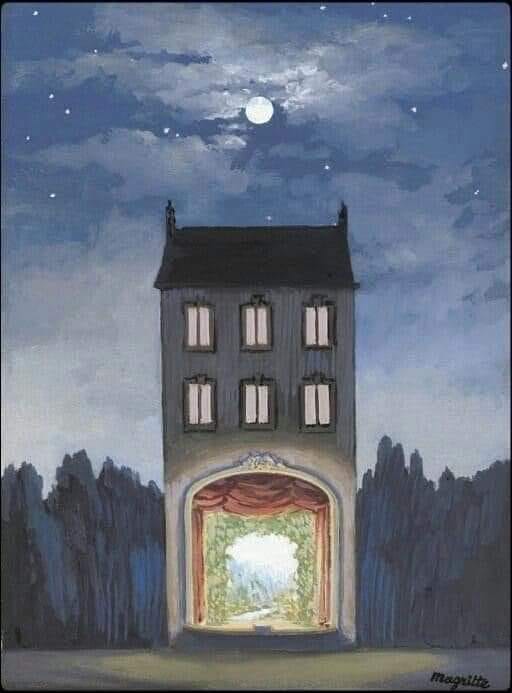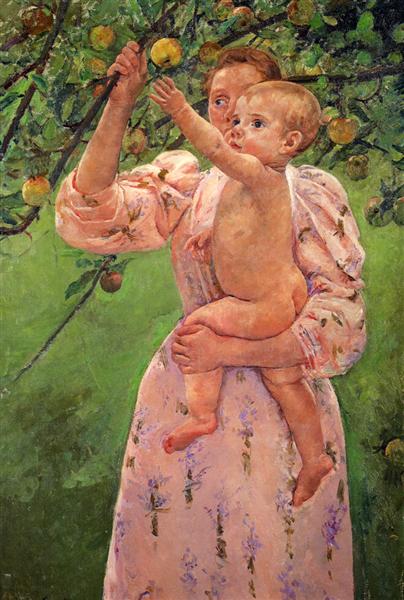|
Join The Ekphrastic Review in London on Zoom! Lorette will be doing an ekphrastic workshop for the London Arts-Based Research Centre on May 8, 2024. We will be looking for inspiration from women surrealist artists around the world. It's going to be wonderful! Click on the image or the link below for more information and to sign up.
https://labrc.co.uk/2024/04/12/ekphrastic-inspiration/
0 Comments
The Tailor I hardly know why I came here today. I had been walking. Walking and walking. From the tube station at Holborn, down Great Queen Street, averting my eyes from the hulking edifice that is the Freemason’s Hall. I do not like to look at it. It scares me – as I’m certain it is meant to do. I cross Drury Lane and my heart stops beating so wildly. On Long Acre I can breathe more easily. Where am I going? Ask me and I can’t say. Conduit Street. Floral Street. The Strand. In a doorway the hunched shape of a man in a blue nylon sleeping bag. His face is half hidden. How can he sleep there? The noise, the traffic, the tramping feet, the rattling wheels of suitcases. His body soft and vulnerable, lost in sleep. He had a name once. I could stop and ask him his name. I could, but I don’t. I barely look at him. The sky is overcast; the light everywhere is diffuse, banal. Today, I think, is the last day. I head to the National Gallery. Bag search. Tourists. Children. Turn left. Room twelve. I look for room thirteen but it eludes me. I am not looking at the pictures. Not really. For a few minutes I am the only visitor in this room. I lost my job last week. Tomorrow my rent is due. I’m overdrawn in the bank. No savings. Nothing to save. Nothing to save me. No one. I could cry, but if I did I might never stop. Thinking that, I almost do, but choke it back. Then I sense someone watching me. I turn. There is no one there. No living person anyway, but the room is like a room of mirrors and each mirror is occupied by a man or woman or a group of people. I notice their hands first. They are hands doing what hands will do. They gesture, they hang from the wrist, they hold things; a fan, a glove, a letter, books, a distaff, a cross, a child. One hand, Christ’s, reaches out as if to grasp someone or fend off a blow. The trickery of these artists is diluted when all of their works are seen together. I look down at the floor. Then up at the ceiling. The room is still empty, but again I have the sensation that I am not alone. I turn my face, eyes gliding over the painted silk and satin, rose-coloured, blue, orange, green, the earth and sky and grey stone, until at last, I see him - the tailor. And he sees me. This is why I am here. I know it now. Everything suddenly makes sense. I go closer, stand directly before him, breathe him in. He has soft eyes, this man. He stands at his work table. He holds a piece of black cloth by its corner. Yes it is cloth, but the longer I look the more it seems it might be a scrap of moonless sky. In his other hand he holds a pair of shears. Soft his eyes. Standing at his table, night sky and shears in either hand about to make a daylight raid upon her heart. Read that expression. Read the language of his body. Mystery will acquit itself in the starched white curls of lace at his neck, his wrists. His clothes are patterned with slashes. Meant to suggest the outcome of a swordfight, his hose must have been ruinous to health if the result of violence. Pumpkin pants of rusty orange-red cloth with green showing through the fine razor lines. His eyes are soft. He looks up with an expression of gentle enquiry. He seems to speak to me. Yes? Sì? Gold ring on his pinky. Winter light in the north of Italy. Snip snip. There were no stars before I cut them; pinpricks in black velvet. Yes? Sì? It’s me, I say. Here. Now. His doublet of padded silk is pinked with short dashes. The pattern looks like rain falling vertically. You are an atom, I think. I am an atom. Snip snip. He sharpens his blades at the grinder. The tip of the shears is in the region of his elaborate groin with its modest, mouse-like codpiece. Look closer. Look at the lace on his cuffs. Small waves of stiffened linen fringed by tiny pearl-like knots of silk thread or… Or… who cares? Those waves are made by a heated iron. I notice the shadow of the lead-coloured scissors. The light is falling from high overhead. Falling above his right shoulder. The wall behind him is the flank of an elephant. He makes a good picture, this tailor. I stand watching him, willing him to move or give a hint of something. Ashes and atoms you are, I think. Yes? Sì? Atoms. Time-traveling tailor, somewhere here in London are his children’s children’s children. The stitched-in lines of his descendants roil and tumble under a different sun. Some cut, some slashed by history. Darts in eternity. Where did it go? My everything? he says. And why am I here? Waiting and watching. Caught with the night in my fingers. I was about to cut the cloth, but something stopped me. So I have rested my head; stopped in the movement of lifting it, or letting go. You heard a skylark this morning and a beggar you thought was asleep in a doorway was really dead. Such things happen. Later you knelt by your bed and gave thanks for good fortune. Your prayers seeped into the cloth were cutting. Chalk lines guided you to this. Even in that moment you were dying and taking me with you. I saw a beggar too. Yes? Sì? Your eye takes someone’s measure, I think. The more I look, the more I question the mystery of that expression. Soft? Kind? Or calculating? It is the look of one who is waiting. It’s the tilt of the head that lends him sympathy; a sort of quiet humility. The more I look the more I see paint. Mostly in the pattern on the doublet, the brush marks, dark on light and light on dark, sometimes almost slapdash, sloppy. There again, not so. Shall we run away together? Shall we? Yes? Sì? I do not see the paint that creates his face. I see skin. I see a soft, fine beard, dark hair cut close to the scalp. Brown eyes. Pink flesh where it is sculpted by the complex cartilage of his ear. If we ran away what would your wife say? She knew that I was haunted by something. Ghosts, she thought. Did she? Sì. What are you doing, Georgio? Standing there in a daydream! There are two mourning gowns to be done for that funeral before the feast of Santa Lucia as well as the butcher’s slops to be sewn. Georgio, do you hear me? What are looking at? There’s nothing there. Painted inside the lid of their cassoni is a picture of the mythical Daphne running naked across a meadow towards a laurel tree. She represents purity. A woman’s purity that he will pollute in the getting of sons. Now I see sadness. Stare long enough and you will think that he’s been crying. That spot of pink in the corner of his eye, the liquid highlight on the iris. The silvery trail, a salt trace by the side of his nose gives him away. And the mouth just slightly downturned, slightly tight. The lower lip is pale and might be trembling. A spot of colour on his cheek, a bruised look beneath the eye. There’s nothing there really. Yes. Sì. Only paint. Ground pigment; Red Ochre, Yellow Ochre, Carbon Black, Lead White, Vermilion. What are looking at? Sorrow. The sorrows of the Virgin. In the church of the martyred San Giuliano he kneels and with no work materials or tools for his busy hands, he turns the gold ring on his little finger around and around. Then stepping outside he looks at the mountains that swell like mothering breasts around the town. Under the red tiled eaves, he sees the fragile mud nests of the little birds who are yet to return. Those nests will turn to dust. Mineral fragments. Earth tones. Pigment. A bird in the house is very unlucky. Even a painted bird. Let’s run away, I think. The world out there, beyond that window, will amaze you… though it sickens me. You promised me something better. Ghosts can’t make promises. Don’t cry, he says and only then do I feel the warm trickle on my cheek, the tiny pool that settles in the corner of my mouth. Licking my lips, I taste salt. I sense the world calling me. One last time, I will the painted man to live. He waits, head still tilted in enquiry. I’m going now, I whisper. Sì, he says. Still sorrowful. Same as yesterday. And tomorrow. Tomorrow, a laurel tree. Jo Mazelis Novelist, poet, and short story writer, Jo Mazelis lives in Swansea. Her novel Significance won the Jerwood Prize 2015. Her first collection of short stories, Diving Girls was shortlisted for Commonwealth Best First Book. Circle Games was long-listed for Wales Book of the Year. Ritual, 1969 was long-listed for the Edge Hill Prize and shortlisted for Wales Book of the Year in 2017. Blister and Other Stories was shortlisted for the Rubery Award in 2023. Her poems have appeared in Poetry Wales, The Screech Owl, Bad Lilies, Abridged, Pomegranate and Visual Verse. https://en.wikipedia.org/wiki/Jo_Mazelis In Blue Rooms: For My Mother My grief paints the last days of you in Picasso’s muted tones of melancholy. Paints you in a gown the colour of consolations; hospital walls, shades of faded postcard oceans. Paints your aqua skin, paper-thin, bleached by morphine. Daubs the bruised greys for coma. But no matter how I mix the colours, none portray the leach of chemotherapy in your veins, the ruthless atrophy of cells. No colour for the tumour, lodged deep in your brain like an unsolvable riddle. I make a work of art of my mourning. I resist the title, imprinting itself in every moment of my blue period: Portrait of My Mother Dying. Cancer rendered you into a still life. Yet your seascape eyes, your topaz ring cut from clear summer sky, sing brighter hues in my memory. I am Picasso, hiding another room inside this room of (in)terminal waiting, a place of solace. I sketch the vase of cornflowers, defiantly joyful like you, cooking to music in the kitchen, your hands a dance of spices and love over the pan. Splash recollection’s canvas in vivid cobalt for the coverlet to warm your weary body. Direct the sun from a window to drench you in seven intensities of light—one for every year your illness tainted. From the ghost of your heart-shielding breast—brave absorber of unspoken sorrows, sacrificed years ago—I release a symphony of sapphire butterflies, winging your pain far away. Soon, you too, will take flight, beyond the confines of these blue rooms, into an endless sky. Grief mourns with one palette, love with another. Melissa Coffey This poem was first published at Medium.com. Melissa Coffey (they/their) is an Australian writer and editor. A former theatre director, they’re fascinated by the wilds of nature and the human heart. Their work often explores loss, desire and sexuality, sometimes through a feminist lens. Melissa’s poetry and fiction are published in Aurora Journal, Exist Otherwise, Crow’s Quill Magazine, Last Girls Club, and The Ekphrastic Review. Forthcoming are works in Antithesis and two anthologies in 2024 (Improbable Press and The Ekphrastic Review). Melissa was once an artist’s model, where they fell in love with art. They’re working on several chapbook projects and a novella. Connect on Twitter @CuriousSeeds. Artists’ Model Not to be cut by artists’ eyes, The model turns away, Wishing her true face onto A protected presence Living within her and safe, Much more than a likeness. But never mindless or mute, She intimates to the painter With her cambered spine Elliptical knowledge unvoiced Of the price she pays To preserve herself faceless. James Shay James Shay is a poet and visual artist living in the Sonoma Valley of California. Poetry publications include The Blue Unicorn and The Ekphrastic Review. An architect for fifty-three years, he studies ancient Egyptian temples, tombs and other structures. Fear of Where the River Goes I'm but a fish in river where I break the surface, feel the air, and fall despondent in despair to wish for wings that I could wear and be instead the butterfly who flutters through an endless sky and never has to wonder why its life between two banks would lie where all that it has never seen denies a way to ever glean the wisdom that would still a soul that has no way to seize control nor hope at hand it might impose on fear of where the river goes. Portly Bard Portly Bard: Old man. Ekphrastic fan. Prefers to craft with sole intent... of verse becoming complement... ...and by such homage being lent... ideally also compliment. Ekphrastic joy comes not from praise for words but from returning gaze far more aware of fortune art becomes to eyes that fathom heart. This poem and the artwork it accompanies is from Thinking Inside the Box: the undrawn art of poet's heart, a very special collaboration between Portly Bard and Lorette C. Luzajic. The hardcover and paperback both feature a full colour collection of Luzajic's visual art, with ekphrastic responses in poetry by Portly Bard. There is also a dialogue between the two artists about ekphrasis and creativity. You can add this jewel to your library by clicking the front cover image. There is also an ebook version that you can download free of charge, below.
Tenderness at the Cusp When sun Bleeds through the waters Lancing out to Trestrignel Dappling like panned gold They shine brighter Than any sky Blushing As it folds A candle lights the future Tenderness at the cusp Eyes cast down In some reverence holy The air gathers This family In a sunset cup Nods to old And young alike Divinity Sought In that light Brightest before night Amanda Niamh Dawson Amanda Niamh Dawson was raised in London, Dallas, Boston, and Washington, DC, spending summers shining brass in her uncle's antiques shop. She attended Tufts University, the Ecole du Louvre, and Sorbonne University and then completed graduate studies in the decorative arts at Winterthur. Amanda worked at Sotheby's in Books & Manuscripts, and Old Master Paintings. She has a collection of antique brass candlesticks which she shines regularly. Her poems have appeared in The Dewdrop, Pomona Valley Review, The Banyan Review and others. The Mountain Dwellers for Peggy Knelt close to the ground, we looked up. It was new every night or not there at all. We looked up, and we gave her a name. When the dark drew down, we looked up. She pulled blood from women, desire from men. We looked up. We were shaking and luminous. In death and at birth, we looked up. We blew prayers and ash up to her and her children. We looked up and teased ritual from myth. Each day at the change, we looked up. She set fire to mountains we knew were not burning. We looked up, we looked up, we looked up. Autumn Newman Autumn Newman is a metrical poet living in California. She mentors women learning meter in Annie Finch's online community, The Meter Magic Spiral. Her poems have been published in many journals and her chapbook, This Is My Body A Flower Burst Open, is forthcoming from Finishing Line Press. Home Time turns upside down on the freeway of life. Days blur into oatmeal at the breakfast table. Green leaves born as buds, hopeful as a new intention, unmask to red, gold, and brown in the autumn crisp. With the blueness of evening they become colourless. Branches remain predictable securing the next generation, pointing to a structure with footings and a solid roof. At the door the glow of love greets us like a garden, a bed of comfort and safety, where windows watch the world. Lois Perch Villemaire Lois Perch Villemaire is the author of My Eight Greats, a family history in poetry and prose published in 2023. Her work has appeared in such places as ONE ART, The Ekphrastic Review, Pen In Hand, and anthologies, including I Am My Father’s Daughter. Lois lives in Annapolis, MD. where she enjoys researching family history connections, fun photography, and doting over her collection of African violets. Eve Writes to Mary Cassatt I know you will never marry or bear a child, instead becoming a matron saint to mother and child, a twist of fate from the outside in, witness to the bond and cleave a thousand times over. So what if yours are two-dimensional and cannot be lifted from the canvas? Still they are alive and breathe, leave evidence of the endless story, the holy link. Before you left the garden I might have read your palm, traced the lifeline from my rib to yours against the clink of chain as you unlatched the gate. Do not the poses and the waiting tell the tale? The girl slouched in a blue armchair, a mother about to wash her sleepy child, the one combing her daughter’s hair, this baby in her mother's arms reaching for an apple? It is cold in my garden as I write. I want you to know I could have kept your secrets, could have saved the letters that you burned. Sharon Tracey Sharon Tracey is the author of three books of poetry: Land Marks (Shanti Arts), Chroma: Five Centuries of Women Artists (Shanti Arts), and What I Remember Most is Everything (All Caps Publishing). Her poems have appeared in Terrain.org, Radar Poetry, SWWIM Every Day, and elsewhere. She loves writing ekphrastic poetry. Find some of her work online at sharontracey.com Nine Lives: an Ekphrastic Marathon Try something intense and unusual- an ekphrastic marathon, celebrating nine years of The Ekphrastic Review. Join us on Sunday, July 14, 2024 for our third annual ekphrastic marathon. This is an all -ay creative writing event that we do independently, together. Take the plunge and see what happens! Write to fourteen different prompts, poetry or flash fiction, in thirty minute drafts. There will be a wide variety of visual art prompts posted at the start of the marathon. You will choose a new one every 30 minutes and try writing a draft, just to see what you can create when pushed outside of your comfort zone. We will gather in a specially created Facebook page for prompts, to chat with each other, and support each other. Time zone or date conflicts? No problem. Page will stay open afterwards. Participate when you can, before the deadline for submission. The honour system is in effect- thirty minute drafts per prompt, fourteen prompts. Participants can do the eight hour marathon in one or two sessions at another time and date within the deadline for submissions (July 31, 2024). Polish and edit your best pieces later, then submit five for possible publication on the Ekphrastic site. One poem and one flash will win $100 CAD each. Last year this event was a smashing success with hundreds of poems and stories written. Let's smash last year out of the park and do it even better this year! Marathon: Sunday July 14, from 10 am to 6 pm EST (including breaks) (For those who can’t make it during those times, any hours that work for you are fine. For those who can’t join us on July 14, catch up at a better time for you in one or two sessions only, as outlined above.) Story and poetry deadline: July 31, 2024 Up to five works of poetry or flash fiction or a mix, works started during marathon and polished later. 500 words max, per piece. Please include a brief bio, 75 words or less Participation is $20 CAD (approx. 15 USD). Thank you very much for your support of the operations, maintenance, and promotion of The Ekphrastic Review, and the prizes to winning authors. If you are in hardship and cannot afford the entry, but you want to participate, please drop us a line at theekphrasticreview@gmail.com and we'll sign you up. Selections for showcase and winning entries announced sometime in September. Sign up below! |
The Ekphrastic Review
COOKIES/PRIVACY
This site uses cookies to deliver your best navigation experience this time and next. Continuing here means you consent to cookies. Thank you. Join us on Facebook:
Tickled Pink Contest
May 2024
|
||||||
